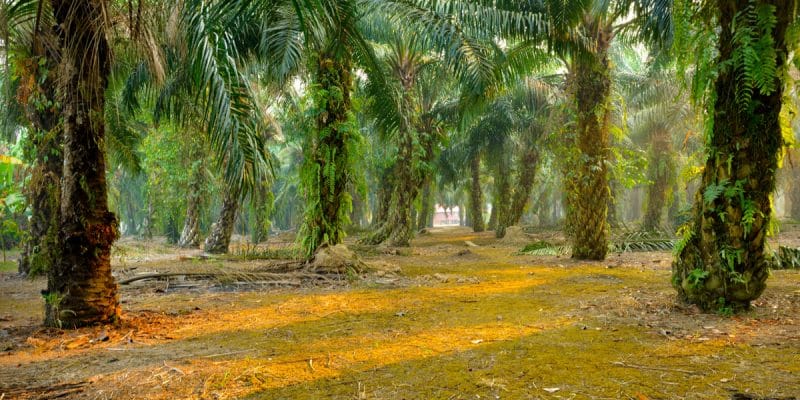The Round Table for Sustainable Palm Oil (RSPO) has recently certified the palm oil produced in Makouke by Olam. The activity carried out by the Singaporean group is thus recognised as sustainable and respectful of the environment.
Olam palm Gabon (OPG), the country’s oldest palm grove, first established by the Gabonese company Agrogabon in 1981, taken over by Siat Gabon and acquired in 2016 by the Singaporean group Olam, has been certified by the Roundtable on Sustainable Palm Oil (RSPO) association.
The RSPO certification attests to the fact that in the Makouke palm grove, which employs 710 people, including 658 Gabonese for a production of 22 tonnes of oil per day, the work is done in a sustainable way, i.e. economically viable, ecologically appropriate and socially beneficial. “Since the beginning of our activities, we have been committed to protecting high conservation lands while ensuring the sustainable development and operation of our palm plantations. We are honoured that our efforts have been recognised by the RSPO in its first awards,” said Darshan Raiyani, Director of Plantations in Olam Gabon.
Olam Palm Gabon manages a global concession area of 144,000 hectares, more than 50% (72,000 ha) of which is permanently protected forests, wetlands and savannah. The company has committed not to further develop or expand new plantations until all existing plantations obtain full RSPO certification in 2021.
It will still require continuous monitoring
However, RSPO certification should not clear Olam palm Gabon of controls on compliance with environmental standards. This certification, set up in 2004 by the major palm oil producers and consumers in cooperation with the World Wildlife Fund (WWF), has been criticised by various sectors, in particular environmental NGOs.
Its effectiveness is currently considered very limited by the International Union for Conservation of Nature (IUCN), which stated in a report in 2018 that this certification system “has so far proven to be only slightly more effective in preventing deforestation than its uncertified equivalent”. IUCN nevertheless highlighted the relatively recent nature of this initiative and its potential to improve the situation.
It should be recalled that some RSPO-certified companies praise the merits of “sustainable” palm oil while continuing to clear the tropical forest. One example is the palm oil giant Wilmar, currently the world’s leading group in the field, which is involved in about 100 land and human conflicts in Indonesia alone. This has led some 256 environmental and human rights organisations around the world to reject RSPO certification as ineffective.
Boris Ngounou







